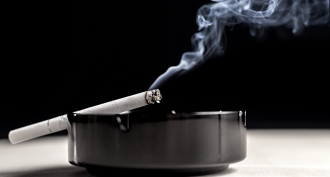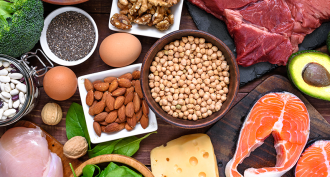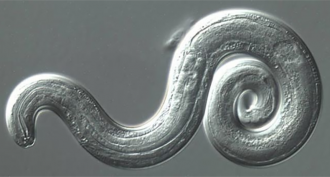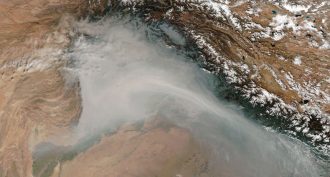Humans
-
 Health & Medicine
Health & MedicineTeens’ cell phone use linked to memory problems
A new study suggests teens who get more exposure to cell-phone radiation — and hold their phones up to their right ear — do worse on one type of memory test.
-
 Health & Medicine
Health & MedicineHere’s what puts teen drivers at greatest risk of a crash
Most teen car crashes trace to distraction and a driver’s inexperience. New studies point to how easily we can be distracted and by which activities.
-
 Health & Medicine
Health & MedicineAnalyze This: A good reason to drive with an adult in the car
Teens are much safer drivers during their “learner” stage, when there’s an adult in the car. Once they get a license and begin to drive solo, they exhibit more reckless behaviors.
-
 Environment
EnvironmentStudies report new risks to teens from secondhand smoke
Teens exposed to secondhand smoke are more vulnerable to getting sick, one study finds. Another suggests that later, in adulthood, these individuals may be at risk for premature death from lung disease.
-
 Health & Medicine
Health & MedicineExplainer: What are proteins?
In the body, proteins act as biochemical machines to carry out the work of cells.
By Bryn Nelson and Bethany Brookshire -
 Psychology
PsychologySmartphones may serve as digital security blankets
In a new study, students in awkward social situations experienced less stress if they had — but didn’t use — their smartphones.
-
 Health & Medicine
Health & MedicineImmune targeting of cancers wins two a 2018 Nobel Prize
Doctors used to target cancers with a scalpel, toxic chemicals and radiation. Two scientists just won a Nobel Prize for coming up with a fourth tactic: turning on the immune system.
By Tina Hesman Saey and Aimee Cunningham -
 Humans
HumansScientists Say: Neandertal
This extinct species is a close relative of modern humans. Neandertals lived in Europe and Asia, and made tools and jewelry — just like us.
-
 Tech
TechScientists enlist computers to hunt down fake news
Who can you trust? What can you believe? Scrolling through a news feed can make it hard to decide what’s real from what’s not. Computers, however, tend to do better.
-
 Health & Medicine
Health & MedicineParasitic worms sicken people in the mainland United States
A worm native to Asia has sickened at least 12 people in eight continental U.S. states since 2011, a new report finds.
-
 Health & Medicine
Health & MedicineStudy links weight to when the school bell rings
Teens and preteens who started school earlier in the morning were slightly heavier than those who started later, in a large study of Canadian students.
-
 Environment
EnvironmentAir pollution is shortening lives worldwide
Worldwide, tiny particles of air pollution are making the average person’s life a year shorter.
By Katy Daigle